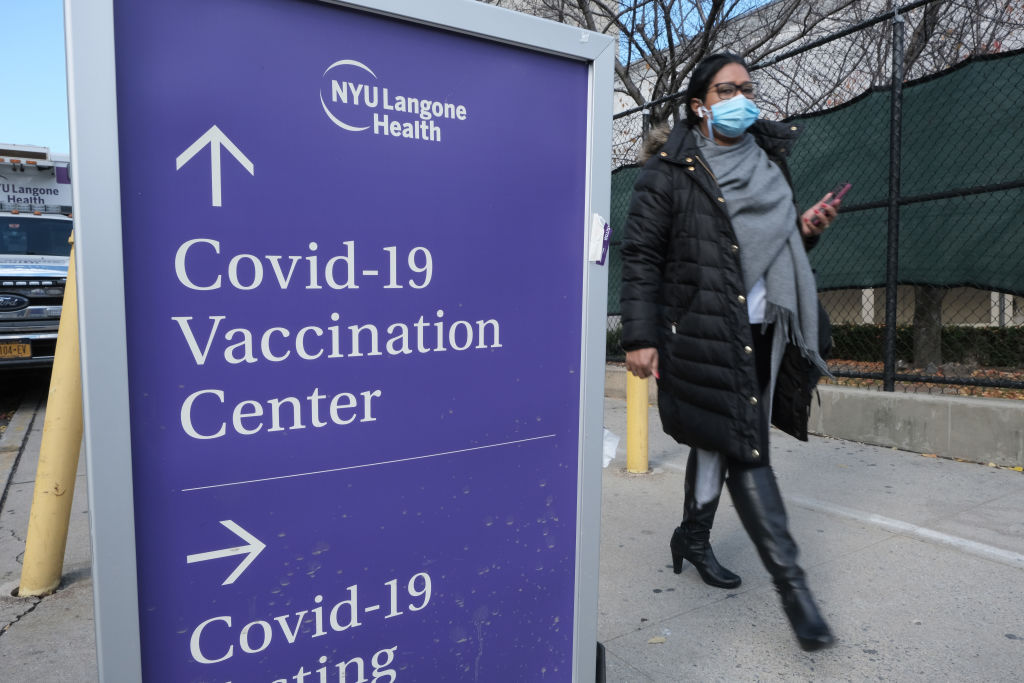We bring news that matters to your inbox, to help you stay informed and entertained.
Terms of Use and Privacy Policy Agreement
WELCOME TO THE FAMILY! Please check your email for confirmation from us.
A large meta-analysis published in 2021 found that Black people with COVID were more likely to be hospitalized in intensive care units.
Doctors advise Black people to exercise extreme caution when trying to avoid multiple COVID-19 infections, noting that the outcomes are different and more harmful.
S. Monet Wahls discovered her regular fall and winter cough had become a year-round hacking, and sleeping was more difficult after getting COVID-19 for the third time in May 2022, NBC News reported.
Wahls’ lingering, persistent symptoms demonstrate a possible outcome of getting COVID-19 multiple times. While each infection appears to have its own symptoms, Dr. Geoffrey Mount Varner, an emergency department physician, noted that some data revealed that COVID harmed Black people disproportionately, so it makes sense it would be the same with numerous infections.
He added that the virus’ impacts may cause outsized harm to Black communities if uncontrolled.
Comorbidities such as diabetes, heart disease and obesity are the main factors for negative COVID reactions, he said, and “with multiple infections, the data is showing that each infection is like a health insult that will manifest itself more in the hardest-hit community, which is Black people.” Varner told NBC News, “So, you have a sick person getting this virus more than once and the outcome is going to be different, more harmful, than white counterparts.”
An analysis published in 2021 found that Black people with COVID were more likely to be hospitalized in intensive care units.
William Matos, an Atlanta attorney, had COVID three times, with the first and most severe headaches and body pains occurring around Christmas 2021. “It was murderous,” he recalled.
Matos had the vaccine and booster injection, and his subsequent coronavirus symptoms were more like allergies. Still, he is concerned about what the future holds.
Varner noted some precautions for deterring the virus, such as wearing a mask in crowded settings, thoroughly washing hands, and receiving the vaccination and booster doses. He also mentioned that vitamins and minerals might aid in the fight against COVID.
In addition, regular physical activity and exercise and getting seven to nine hours of good sleep each night contribute to a stronger immune system, Varner said. In the NBC interview, he also mentioned consuming enough water to assist “with the production of white and red blood cell lines.”
Varner said the methods used to inform Black people about the dangers of numerous COVID infections and the significance of vaccination have to change. He believes using messengers resembling the intended recipients makes them more effective and better received, noting that the current messaging has remained stagnant with no concentrated effort to reach out to Black people lacking Wi-Fi access or extensive medical knowledge.
Dr. Jayne Morgan, a cardiologist and executive director of Piedmont Healthcare’s COVID task force in Atlanta, said the lower likelihood of having health insurance and decreased access to clinical care heightened the virus’ effects among Black and Latino people, creating a cycle of hardships that could stunt family growth.
She stated that fears of COVID would be minimized if society as a whole had opted to get the vaccines to establish herd immunity, which occurs when a dominant portion of the population develops immunity to a disease.
“This became a political football … and science didn’t have a voice or very weakened voice, a soft voice,” she said. “Science wasn’t ready for a virus in the era of social media,” she said, noting that those platforms “took over the narrative” about COVID, replacing doctors’ advice. “Everyone was spreading all kinds of theories — while the disease spread.”
TheGrio is FREE on your TV via Apple TV, Amazon Fire, Roku and Android TV. Also, please download theGrio mobile apps today!

